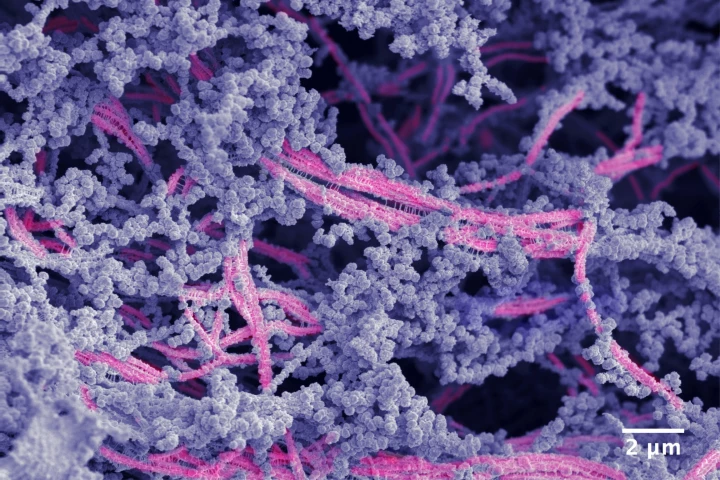Joints
-
Two innovative new developments have demonstrated that degraded cartilage can be regrown, first with 'dancing molecules' that target the protein needed for tissue regeneration, secondly with a hybrid biomaterial that stimulates cartilage growth.
-
A drug currently used as a second- or third-line treatment for those with rheumatoid arthritis has shown huge promise as a preventative, stopping the onset of the debilitating and painful disease in 92.8% of at-risk participants after 12 months.
-
For the first time, scientists have found how our internal body clocks that govern the brain and skeletal system sync up, and upsetting this balance might contribute to injury and accelerate age-related bone and joint decline and disease.
-
Using paired smartphones, motion-capture app OpenCap films video and then uses AI to analyse human movement, providing detailed data for use in rehabilitation, presurgery plans and disease diagnostics – and is 1% of the cost of traditional technology.
-
Researchers have developed a 3D organ-on-a-chip that mimics the human joint. The discovery will help researchers understand the pathology of joint diseases better and assist with the development and testing of new treatments for arthritis.
-
Researchers have called for a review of the recommendations for the treatment of hand arthritis, after a large study revealed that injections were as ineffective as a placebo for pain relief. Injections are considered the most effective pain reliever.
-
In a world first, Budapest Zoo gorilla Liesel has received stem-cell therapy for her arthritis. It's hoped that this groundbreaking procedure, which aims to rejuvenate her damaged joint cartilage, will not just help her but be adapted for human use too.
-
We hear a lot about artificial hips and knees, but finger joints? They do exist, but their fit and functionality is limited. Germany's Fraunhofer research group aims to change that, with artificial finger joints that are 3D-printed for each patient.
-
New data suggests long-term use of non-steroidal anti-inflammatory drugs, such as naproxen or ibuprofen, can be associated with hastened progression of osteoarthritis symptoms. The researchers are cautious to stress the link is still observational.
-
The rise of drug-resistant bacteria calls for new approaches to how doctors protect against bone infection after joint replacements, and a potent new form of bone cement is poised to take up the fight.
-
Joint pain is a common ailment of aging, thanks to cartilage’s tendency to wear out. Researchers at Duke University have developed a new hydrogel that’s stronger and more durable than the real thing, which could make for longer lasting knee implants.
-
Scientists have developed an injectable gel that can prevent a form of injury-triggered osteoarthritis taking hold, by allowing for sustained delivery of drugs in the damaged joints to keep inflammation at bay.
Load More











